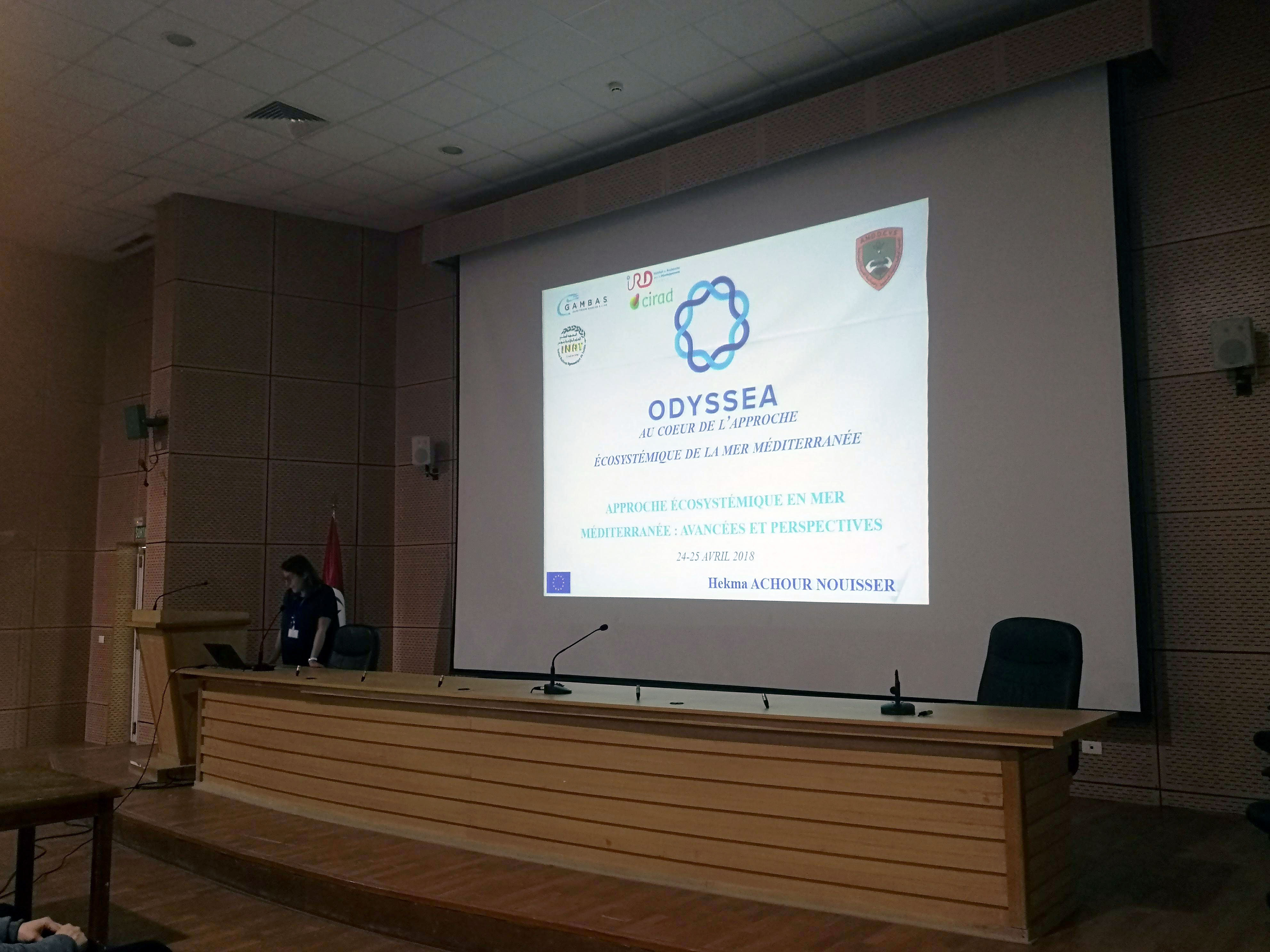The EU-funded ODYSSEA project was the subject of the concluding talk at an event on applying the Ecosystem Approach in the Mediterranean, held at the National Agronomical Institute of Tunisia April 24-25, 2018.
The Tunisian office of France’s Research Institute for Development hosted the conference, through its Young Associate Team on Gabes Marine Biodiversity and Anthropisations (GAMBAS), in partnership with the French Institute of Tunisia.
ODYSSEA is a “major asset” in the field of knowledge needed to establish an ecosystem approach for the Mediterranean, by improving accessibility to existing data and increasing the geographical and temporal coverage of Mediterranean observational data, Dr. Hekma Achour Nouisser, project manager at ODYSSEA Tunisian partner National association for sustainable development and conservation of the wildlife (ANDDCVS), told participants.
“In this way, the ODYSSEA platform will try to satisfy the needs of fishermen, aquaculturists, scientists, hoteliers, meteorologists, et cetera. Access to data in the Mediterranean allows for a global integrated approach to the marine ecosystem. Thus, a regionally adapted strategy could be set up to overcome such challenges as climate change, conservation of marine biodiversity, or sustainable exploitation of resources,” he added.
The Ecosystem Approach is a framework for combining marine resource management and ecosystem conservation, whose implementation requires bringing together various disciplines (including biogeochemistry, physics, macroecology, stock assessment, population biology, and integrated numerical modeling) to improve understanding of ecosystems and inform decision makers on such matters as fisheries management strategy and planning conservation measures.
“Such an approach is particularly important in the Mediterranean Sea, where a series of disturbances (fishing, pollution, biological invasions, and climate changes) are making profound changes in the structure and functioning of the ecosystem,” Dr. Achour Nouisser noted.
Participants also discussed concrete ways to facilitate the implementation of ODYSSEA’s marine observatory.
Dr. Achour Nouisser highlighted ODYSSEA achievements and initiatives to date, and called attention to ODYSSEA’s upcoming Summer School Operational Oceanography for Science, Business and Society.


